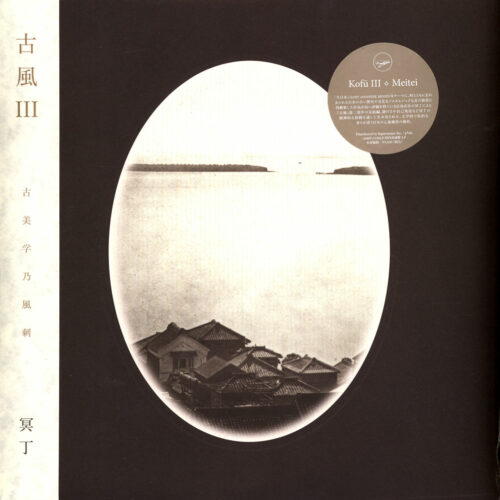In the final chapter of his »Kofū«-trilogy, ambient maestro Meitei searches for »the essence of Japanese culture«. This subject is older than the empire. When American canon boats sounded the end of the shogunate in 1854, the question of national identity became a question of the Japan’s right to exist independently. It has haunted the Flowery Kingdom ever since. Perhaps the most influential answer was given by Inazō Nitobe at the fin de siècle: the soul of Japan could be found in the Bushidô, the aristocratic virtues of the Samurai. In 1933, Jun’ichiro Tanizaki suggested a plebeian alternative. The writer found the »most refined expression« of Japanese culture in the pit latrine. For Nippon’s genius consists in the ability »to turn the abodes most tainted place into a locus of refined taste«. (Of course, there is »no better site to bask in the world’s ephemeral beauty« than the privy.) In 2023, Meitei picks up this tradition. »Kofū III« celebrates impurity. For if you are looking for originary Japanese music, you will not find it in these nostalgic soundscapes. The Western piano is closer to Meitei’s heart than the shakuhachi. Its melodies bask in the murkiness of old shellacs. »Kofū III« never reaches the intricacy of its predecessor or »Komachi«’s enigmatic allure. It is reticent on a musical level, yet more ambitious. For Meitei isn’t looking for »the essence of Japanese culture« by expurgating foreign influences. He found it the love for composting and decay. »Kofū III« is contagious.

Kofu III

